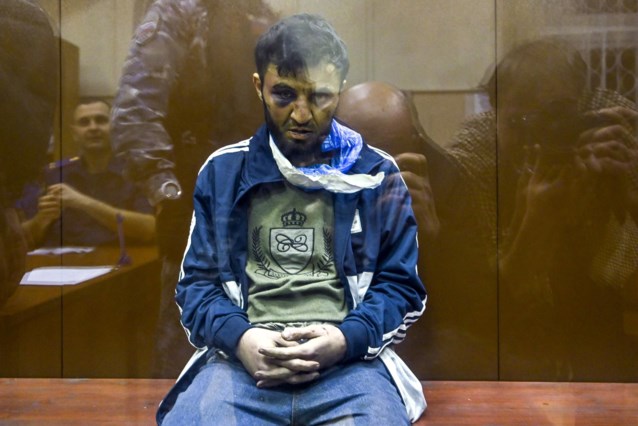It was no ordinary Christmas night at the Cologne Cathedral this year. Heavily armed police officers and dog patrols combed the cathedral and surrounding area, and visitors underwent screening before being allowed into the building. The reason for this vigilance: security services had become aware of terrorist plans that targeted churches during the end of the year. Anti-terrorist services were also extra vigilant in Austria and Spain.
The concrete threat posed by radicalized Islamists who supported the flag of the Islamic State in the Khorasan (ISKP). That branch of IS in Iraq and Syria has the historic Khorasan province in Central Asia as its home region. That region, whose name dates back to the 6th century, extends across Iran, Afghanistan, Pakistan, Uzbekistan, Turkmenistan and Tajikistan. (see map)
Tajiks were arrested in North Rhine-Westphalia and Vienna in connection with the terror plans against the churches. In July last year, German and Dutch police intercepted nine terror suspects with roots in Khorasan in another case: Turkmen, Tajiks and Kyrgyz. According to a UN report, they were plotting ‘high profile’ terrorist attacks, for which they were collecting weapons. They were still selecting their targets. Through the newspaper The Washington Post it had previously been leaked that ISKP was making plans from Afghanistan for at least fifteen attacks in Asia, Europe and the US. These could be thwarted each time, or the terrorist group could call them off itself. But with each of those incidents, it became increasingly clear that ISKP has expanded its sphere of action far beyond its home region, where the terrorist group committed horrific acts that killed hundreds of people. It became the organization to keep an eye on for Western security services.
READ ALSO. Even Putin can no longer deny the link with radicalized Muslims: “But why did the terrorists try to flee to Ukraine?”
Source of inspiration
Belgian State Security has had ISKP on its radar for some time. “We warned earlier this year about the increased threat from ISKP,” the service responds. “After a period in which IS lost its capacity to direct attacks on the European continent due to the demise of the caliphate in Syria and Iraq, intelligence services argue that ISKP is not only succeeding in presenting itself as a source of inspiration for jihadists, but globally also has the capacity to manage terrorists.”
Video | Four suspects in the attack in Moscow appear in court seriously injured
With last Friday’s terrorist act in Moscow, which killed 137 people, ISKP has tragically made it clear that this “capacity to direct terrorists” outside Khorasan is no longer merely theoretical. Eleven suspects in that attack were arrested, and the identities of four of them have been revealed. They all have roots in Tajikistan. Images circulated on social media show how they were severely abused after their arrest. For ISKP it is a reason to threaten additional actions against Russia.
Crypto coins
Due to the attack in Moscow and the involvement of ISKP, France is stepping up its anti-terrorist measures. President Emmanuel Macron also stated that “several attacks” by ISKP have been prevented.
There will be no change in the threat level in Belgium. It is currently three out of four, which means the threat is serious. The highest level is only applied if there are concrete indications of an attack in the (very) short term.
That does not mean that the danger of ISKP is put into perspective. “Belgium is not immune to this threat,” State Security said. “Over the past year, people with roots in the Central Asian region have already appeared in several intelligence files or judicial files.” The spokesperson for the federal public prosecutor’s office says that ISKP is also a “point of attention” for them, but does not provide details so as not to jeopardize ongoing investigations.
“ISKP is currently the greatest threat from jihadism,” confirms Minister of Justice Paul Van Tigchelt (Open VLD). “Our services are working on this, but at the moment there are no concrete terrorist plans for our country. It is a scenario that is being taken into account. The group initially had a local agenda (in Central Asia, ed.). That has changed in recent months and years.”
This change is because the Taliban in Afghanistan are putting pressure on ISKP, but it is also a conscious strategy of ISKP leader Sanaullah Ghafari. A UN report based on intelligence provided by member states does not only describe Europe as a target for ISKP. It is also the place where the terrorist group partly finances itself, including through crypto coins.
